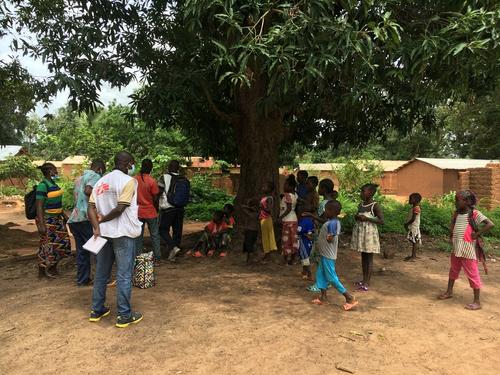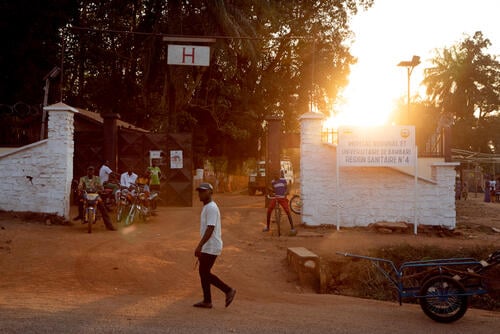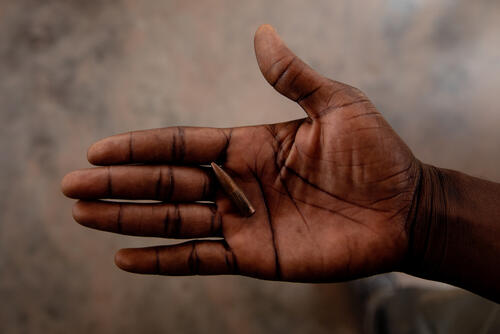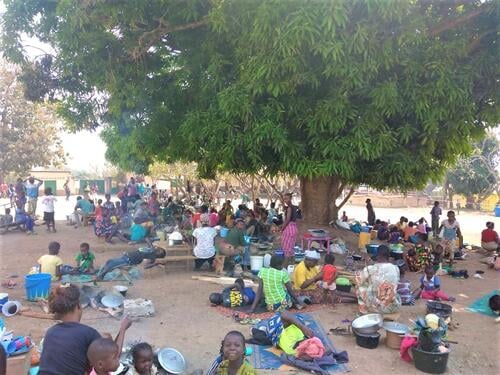The hospital in Batangafo – a town of 31,000 people, including 22,000 displaced from elsewhere in the Central African Republic – is bustling with activity. While a particular focus has been placed on infection prevention and control measures to identify and isolate people with suspected cases of COVID-19, another deadly disease has a much heavier impact on the lives of people living here.
September is the rainy season, when malaria becomes more deadly than ever in the Central African Republic each year. It is the leading cause of death for children under five in the country. During periods when malaria transmission is high, eight out of ten paediatrics consultations in the hospital supported by Médecins Sans Frontières (MSF) in Batangafo are due to complications from malaria, including anaemia and dehydration.
Since the beginning of the year, MSF teams have treated 39,631 malaria cases in Batangafo, compared to 23,642 in the same period last year. This year, 1,074 children under five have been admitted to the hospital because of malaria; 28 of them did not survive.
MSF teams in Batangafo have treated:
39,631
39,631
23,642
23,642
1,074
1,074
“Because he caught malaria, my son is very weak, and the doctors said he is anaemic. They are trying to stabilise his condition to avoid more complications that could be fatal. I am so afraid to lose him,” says Chancella Gbtoum, mother of five-year-old Yakota Abbias. Chancella and her younger child have both received antimalarial medication from MSF as a preventative measure.
“I gave my other, 11-month-old child the medication against malaria that we received from MSF,” says Chancella. “I took it too. I know that this time, we will not get sick.”
To mitigate the impact of this deadly disease and protect the community, MSF launched a targeted campaign of preventative treatment, also known as a mass drug administration, for malaria, at the beginning of the rainy season. In order to reach a maximum number of people and to make sure that people understood the importance of this initiative, the campaign was run in three stages.
First, we raised awareness of the campaign with the help of community leaders and by broadcasting spots on the local radio. Next, the team went door-to-door to distribute the preventative treatment. And finally, they returned to each household to check if people had taken the treatment and to identify any side effects.
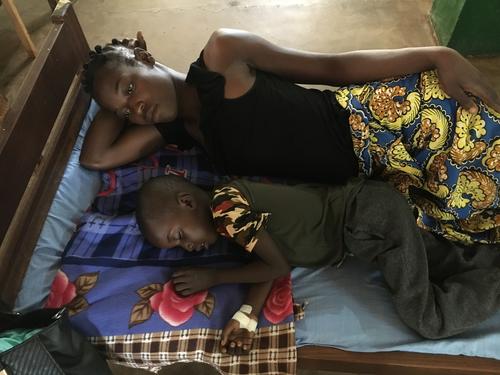
By taking the medication to people in their own homes, they avoided the risk of crowds gathering at distribution sites and potentially spreading COVID-19. The MSF teams also adopted protective measures such as wearing masks and keeping a safe distance between individuals.
The rise in patients with malaria is not limited to this region near the border with Chad, but is happening countrywide.
“During the rainy season, malaria ravages communities that have limited access to healthcare and preventive measures,” says Carmen Terradillos, MSF´s medical coordinator. “Every year, we are seeing a spike of malaria cases across MSF’s projects in the Central African Republic. In 2019, we treated 578,072 cases of malaria throughout the country.”
“Receiving effective malaria treatments remains inadequate in a country that has seen years of conflict and neglect,” Carmen says. “Treated mosquito nets are expensive and out of reach for many. The mass drug administration is an effective way to prevent complications from malaria.”
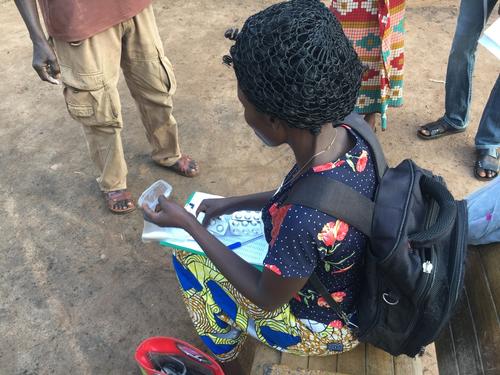
Residents of Batangafo were eager to protect themselves and their family members from a disease which has already killed many children in their community.
“I am pregnant, and I do not want to get malaria. It is dangerous for my future child,” says Félice. “I know I am more vulnerable, and I need to take this treatment.”
In the first round of the campaign, MSF provided preventative treatment to a total of 32,670 people, including 6,531 children and 135 pregnant women. The next round of the campaign is scheduled for the end of September.
Located in Ouham prefecture in the north of Central African Republic, Batangafo has been the site of political, ethnic and religious tension for more than a decade. The security situation is still volatile and instability is expected to increase with the upcoming elections, scheduled for December 2020.
MSF has been working in Batangafo since 2006, supporting the Ministry of Health in Batangafo hospital and in the surrounding areas by providing emergency care, surgery, maternity care, pediatrics care, treatment for HIV/AIDS and tuberculosis, care for survivors of sexual violence and mental health services.



